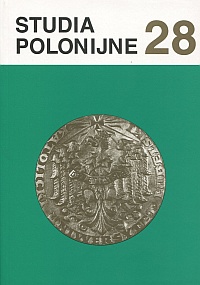Rev. Dr. Tadeusz Kotowski − the First Rector of the Polish Catholic Mission in Belgium
Main Article Content
Abstract
Rev. Dr. Tadeusz Kotowski was born in 1894 in the estate of Kasperówka in the Ukraine. He came from the local gentry. Having graduated from the theological seminary in Żytomierz in 1918, he was ordained to the priesthood. Then he began his work in Kamieniec Podolski, where he soon was nominated a religious teacher of the Polish secondary school. He became famous as an ardent priest and excellent preacher. In 1920 he had to leave his diocese forever.
In the years 1921-1924 he studied at the Philosophical Faculty of Poznań University. Then he moved to France, where he continued his studies and ministered to Polish refugees in the vicinity of Lyon and Nancy. In 1925 he held the post of a dean in the southern part of France.
In January 1926 he was nominated by the Primate of Poland Cardinal E. Dalbor the first rector of the Polish Catholic Mission in Belgium. In the following year the Mission was granted competencies also to Denmark and Holland. Father Kotowski was supposed to organise Polish pastoral care from the start in those countries. Despite enormous difficulties, he managed to do it as a model. Father rector first regulated the legal foundations and principles by which the Polish Catholic Mission with its see in Brussels was supposed to function. In the end of 1927, owing to his activities, there were as many as eight permanent pastoral institutes in Belgium and Holland. The rector in particular cared for the Polish school and academic youth, rendered considerable services to the development of culture and Polish education in those countries.
In August 1928 Rev. Dr. T. Kotowski returned to the country, where he initially worked as a religion teacher in a secondary school in Sarny (the Łuck diocese). After a year he took a similar post in Warszawa. He stayed there until the outbreak of the Second World War. In 1940, together with a group of Polish refugees, he travelled to Brazil and stayed in Rio de Janeiro, where he also temporarily provided religious care for the Polish people there. He did not see the end of the war because he died in April 1945.

